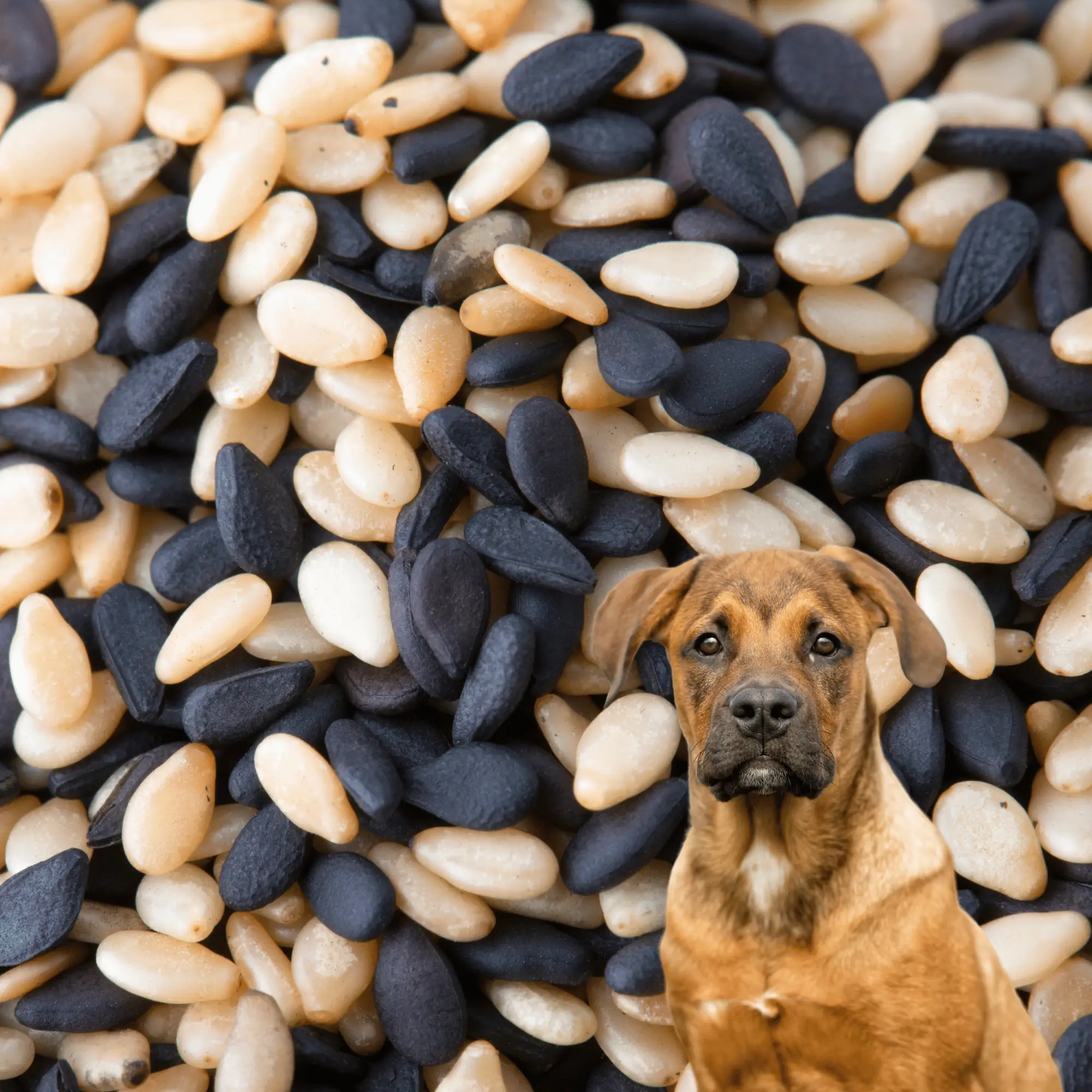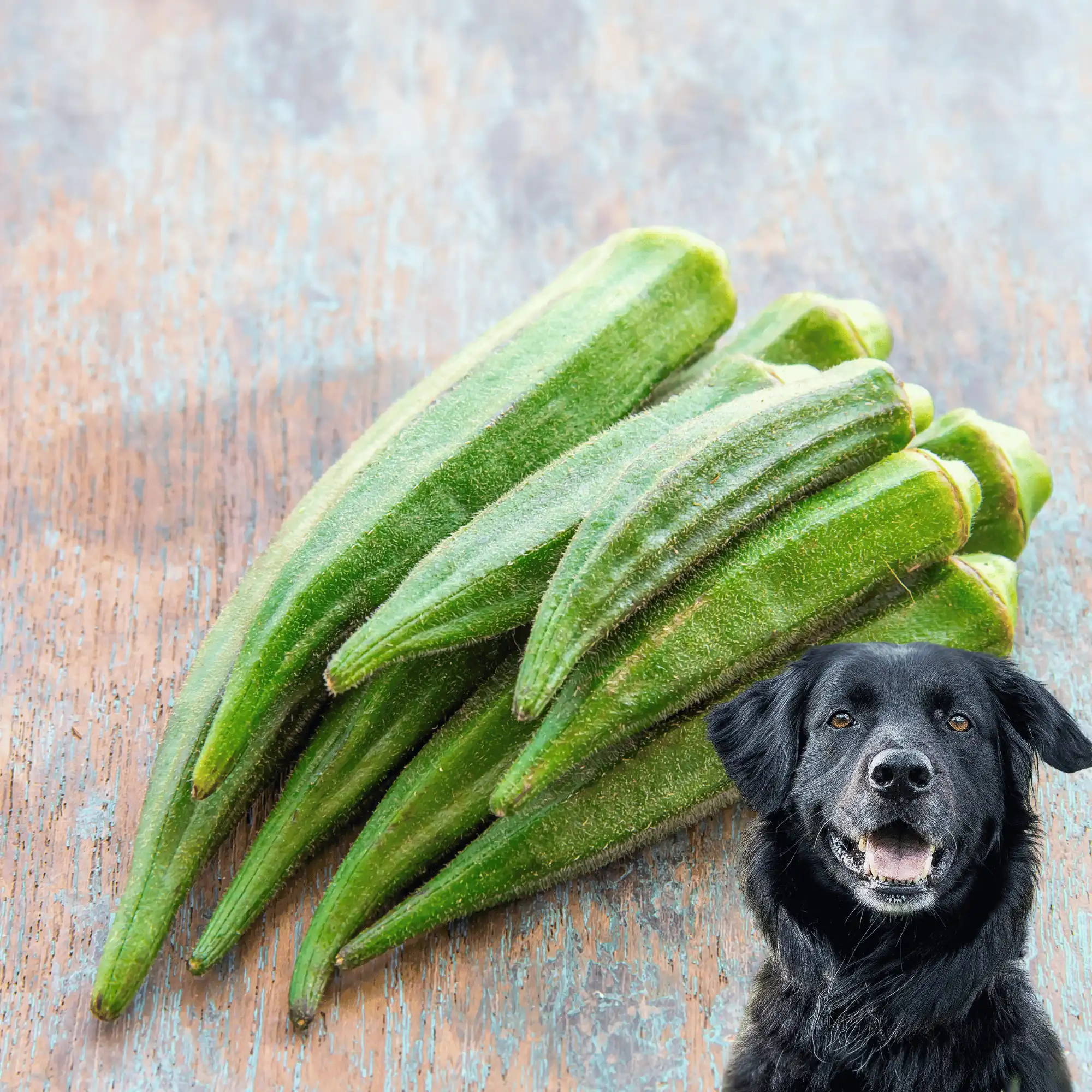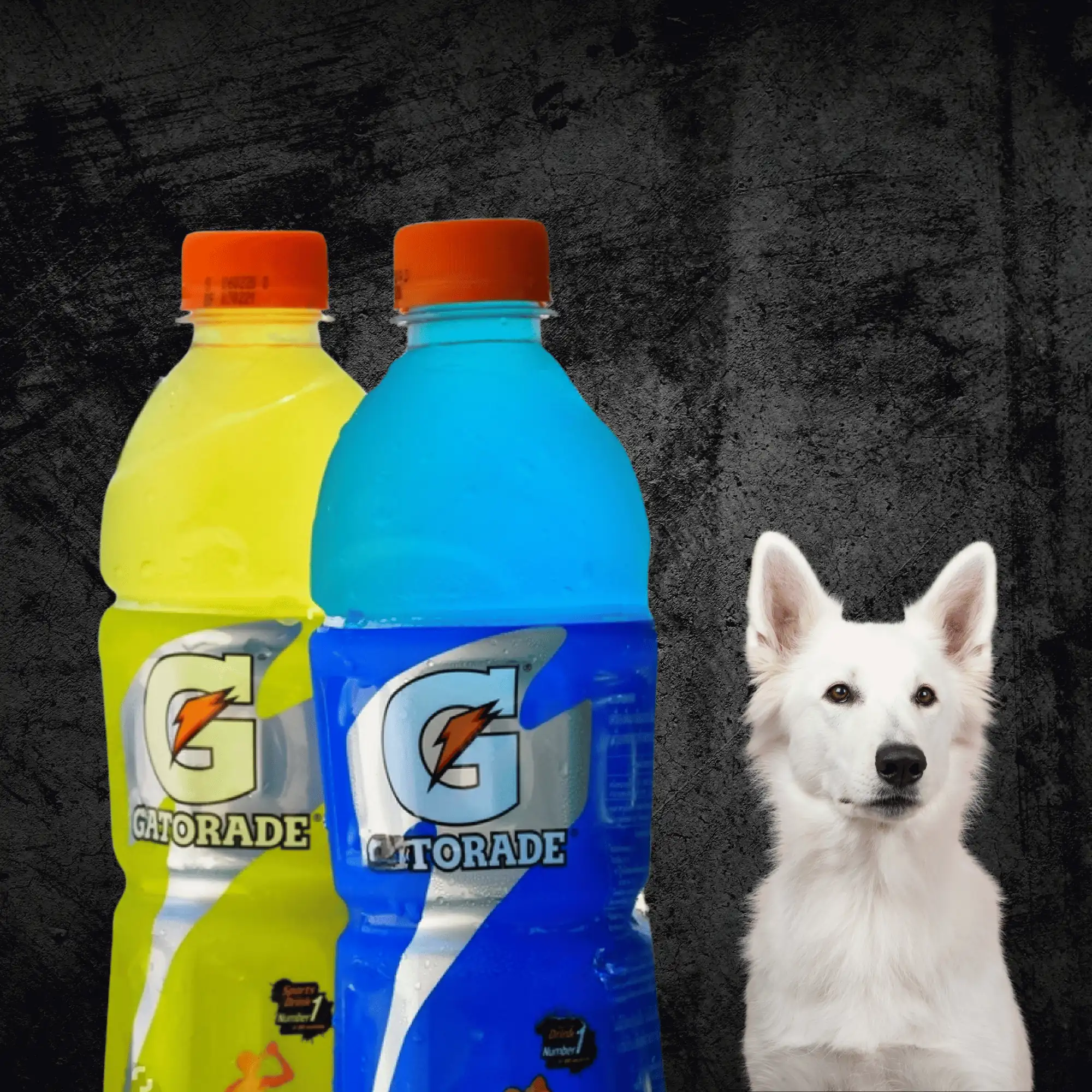Sesame seeds are a healthy ingredient in human foods like hamburger buns, bagels, and sushi. These tiny seeds are packed with vitamins, minerals, and healthy fats, making them a beneficial addition to our diet. However, regarding our canine companions, the impact of sesame seeds can be different. While these seeds are non-toxic to dogs and can offer some nutritional benefits, they may also pose certain risks.
In this article, we will explore whether dogs can safely eat sesame seeds, their potential health benefits, and the risks associated with feeding them to your dog. Learn everything you need to know about incorporating sesame seeds into your dog’s diet.
Here are the topics we’re following in this blog post:
- What are Sesame Seeds?
- Can Dogs Eat Sesame Seeds?
- Health Benefits of Sesame Seeds for Dogs
- Potential Hazards of Sesame Seeds for Dogs
- Can Dogs Eat Other Seeds?
- How to Safely Introduce Sesame Seeds into Your Dog’s Diet
- Substitute Foods for Sesame Seeds in a Dog’s Diet
What are Sesame Seeds?
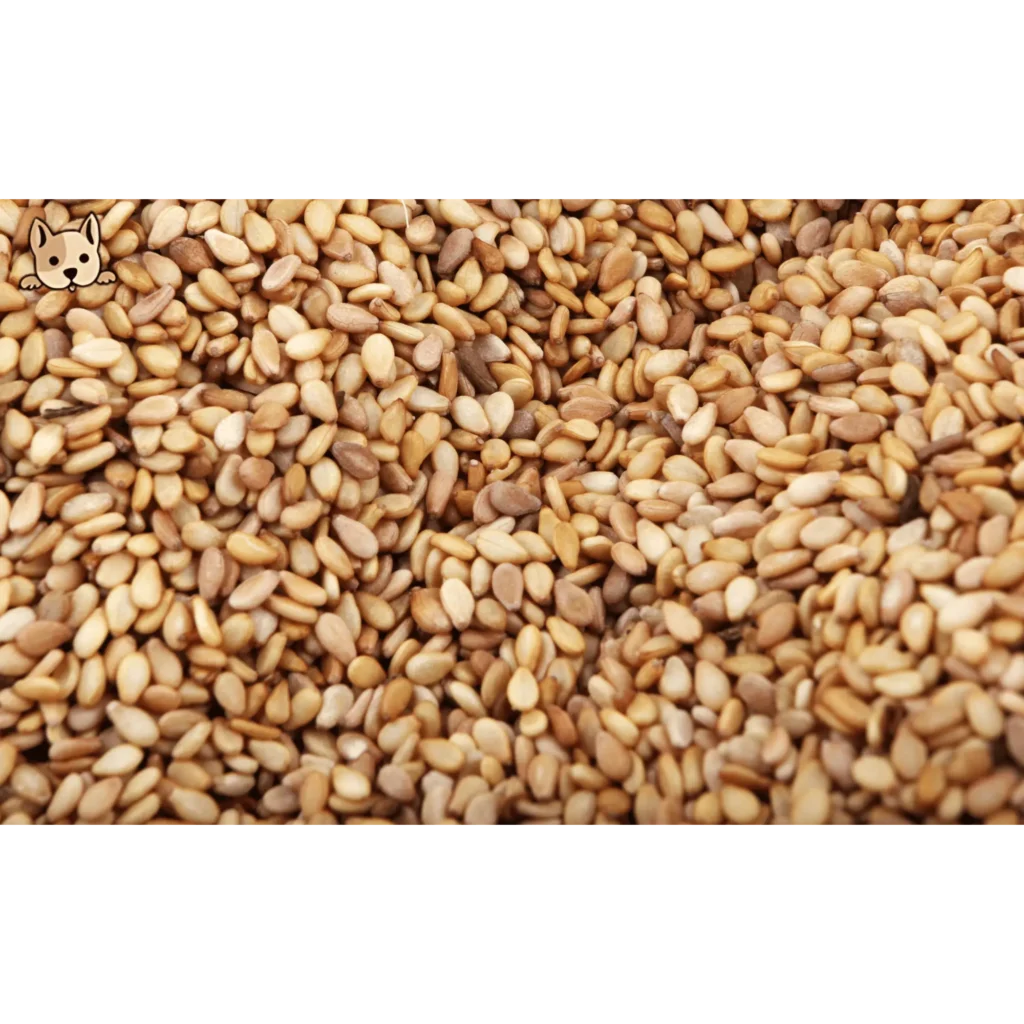
Sesame seeds, also known as gingelly, are one of the oldest oilseed crops, domesticated over 3,000 years ago. The sesame plant has many species, mostly wild and native to sub-Saharan Africa. The cultivated type, S. indicum, originated in India. Sesame plants tolerate drought well and can grow where other crops cannot.
Sesame seeds have one of the highest oil contents of any seed and are known for their rich, nutty flavor. They are used in cuisines worldwide. However, like other foods, sesame seeds can cause allergic reactions in some people and are one of the nine most common allergens identified by the FDA.
Can Dogs Eat Sesame Seeds?
Sesame seeds are safe for dogs in small quantities and can offer nutritional benefits. They are rich in iron, manganese, calcium (which supports bone health), vitamin B, and vitamin E (which may help regulate blood pressure). Additionally, sesame seeds are high in fiber and have anti-inflammatory properties.
However, pet owners need to remember that dog food already provides all the essential nutrients. Adding human foods like sesame seeds should be limited, as dog food typically meets about 90 percent of their nutritional needs.
Before giving sesame seeds to your dog, be aware of potential side effects like allergies or digestive issues. Always consult your veterinarian before introducing any new human food into your dog’s diet.
Health Benefits of Sesame Seeds for Dogs:
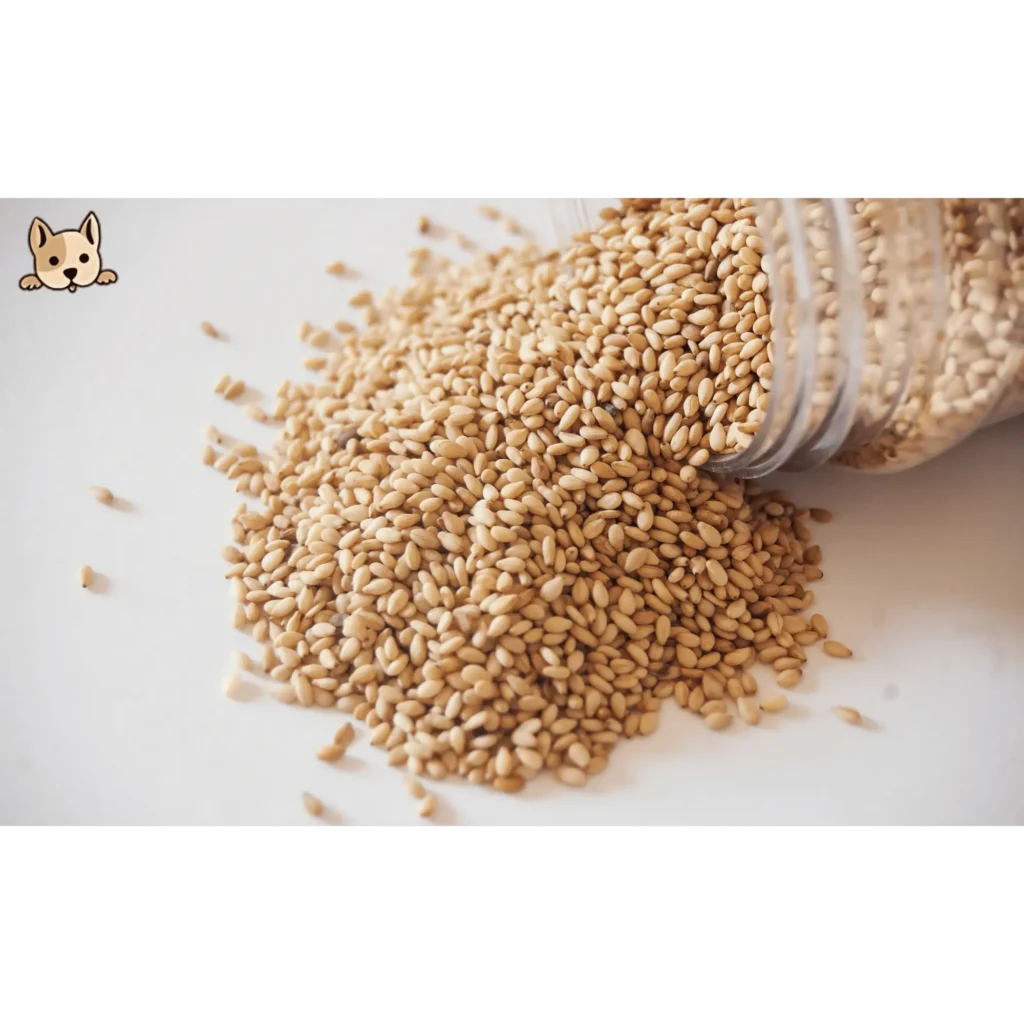
Sesame seeds provide several important health benefits for dogs:
1. Fiber:
Sesame seeds are rich in dietary fiber, which promotes healthy digestion by regulating bowel movements and preventing constipation.
This is especially beneficial for dogs prone to gastrointestinal issues or irregularities.
2. Calcium:
High levels of calcium in sesame seeds support the development and maintenance of strong bones and teeth in dogs.
Adequate calcium intake is crucial for skeletal health throughout a dog’s life, aiding in bone growth during puppyhood and maintaining bone density in older dogs.
3. Copper:
Sesame seeds contain copper, a mineral that helps reduce joint pain and inflammation in dogs.
Copper is essential for the formation of collagen and elastin, which are crucial components of healthy joints and connective tissues.
4. Iron:
Dogs with iron absorption issues can benefit from sesame seeds, as they provide a natural source of iron.
Iron is necessary to produce red blood cells and oxygen transport in the body, supporting overall energy levels and vitality.
5. Antioxidants:
Sesame seeds are rich in antioxidants such as sesamin and sesamol, which help neutralize harmful free radicals in the body.
Antioxidants contribute to overall health by reducing oxidative stress and inflammation, and they may play a role in lowering the risk of chronic diseases, including cancer.
Incorporating sesame seeds into your dog’s diet, under the guidance of a veterinarian, can provide these valuable health benefits and support their overall well-being. As with any new food or supplement, introduce sesame seeds gradually and monitor your dog for any adverse reactions.
Potential Hazards of Sesame Seeds for Dogs:
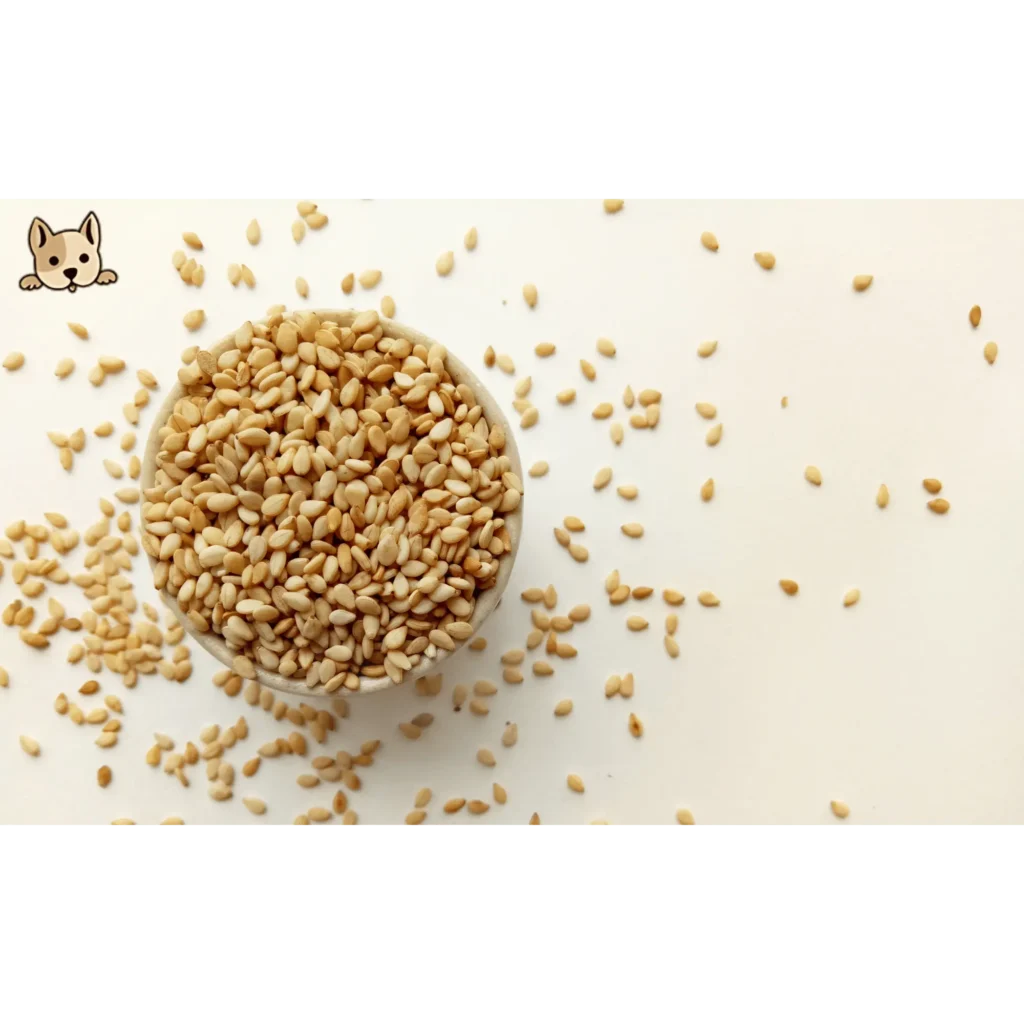
Your dog may have difficulty digesting sesame seeds, potentially leading to allergic reactions or stomach discomfort. Symptoms of overconsumption can include vomiting, diarrhea, loss of appetite, bowel irritation, or abdominal pain. While sesame seeds offer health benefits, they are not essential for your dog’s well-being.
If you notice any negative reactions after feeding sesame seeds to your dog for the first time, monitor their behavior closely. If you’re uncertain or concerned, consult your veterinarian for guidance on safely managing your dog’s diet and health.
Can Dogs Eat Other Seeds?
Yes, certain seeds and nuts, like chia, hemp, pumpkin, and quinoa, are considered safe for pets and can provide nutritional benefits that enhance your pet’s diet. However, it’s important to note that these seeds and nuts can pose choking hazards or cause digestive tract obstructions, especially for dogs with pre-existing stomach conditions or pancreatitis. If your pet has these issues, be vigilant if they ingest seeds or nuts.
Symptoms to watch for include vomiting and diarrhea. If you observe these symptoms or have concerns about your pet’s consumption of seeds or nuts, consult your veterinarian for advice tailored to your pet’s health needs.
How to Safely Introduce Sesame Seeds into Your Dog’s Diet?
Here are steps to safely feed sesame seeds to your dog:
1. Consult a veterinarian:
Always seek advice from your veterinarian before adding human foods like sesame seeds to your dog’s diet. They can provide guidance based on your dog’s specific health needs.
2. Start with a tiny amount:
Begin by feeding your dog a small quantity of sesame seeds, such as up to half a teaspoon per day. This allows you to observe how your dog reacts to the new food without overwhelming their digestive system.
3. Sprinkle over their food:
The easiest way to introduce sesame seeds is by sprinkling a minimal amount over your dog’s regular food. Mixing the seeds with their kibble helps their digestive system handle the new addition more easily.
4. Consider sesame oil:
Pure sesame oil offers similar benefits to sesame seeds. However, be cautious with its high-fat content. Use only a small amount drizzled over your dog’s food to see how they respond.
5. Monitor for side effects:
After feeding your dog sesame seeds or sesame oil for the first time, observe your dog closely for 24 to 48 hours. Watch for any adverse reactions, such as vomiting, diarrhea, or unusual behavior.
If any negative symptoms occur, stop feeding them sesame products and consult your veterinarian promptly.
Following these steps ensures that you introduce sesame seeds or sesame oil to your dog’s diet safely and responsibly, enhancing their nutrition under professional guidance.
Substitute Foods for Sesame Seeds in a Dog’s Diet:
While sesame seeds can benefit your dog’s diet, exploring alternative foods offers a diverse range of nutritional benefits. Consider these options:
- Flaxseeds: Rich in omega-3 fatty acids for a healthy coat and skin. Sprinkle ground flaxseeds on your dog’s food.
- Chia Seeds: High in omega-3s, fiber, and antioxidants. Soak in water to aid digestion.
- Pumpkin Seeds: Packed with protein, healthy fats, fiber, iron, and magnesium. Roast and crush before adding to meals.
- Sunflower Seeds: Provide vitamin E for immune support and skin health. Remove shells to prevent choking hazards.
Diversifying your dog’s diet with these alternatives ensures they receive a balanced and nutritious meal plan.
Conclusion:
Sesame seeds can be a nutritious addition to your dog’s diet when fed in moderation. They offer several health benefits, such as improved digestion, stronger bones, reduced joint pain, and enhanced overall health due to their rich nutrient content. However, it’s important to introduce sesame seeds gradually and monitor your dog for any adverse reactions, such as allergies or digestive discomfort. Always consult your veterinarian before adding any new food to your dog’s diet to ensure it aligns with their specific health needs.
In addition to gingelly, consider incorporating other safe and nutritious seeds like flaxseeds, chia seeds, pumpkin seeds, and sunflower seeds. These alternatives provide a range of benefits and can help diversify your dog’s diet, promoting overall well-being. Remember, the majority of your dog’s nutrition should come from high-quality dog food, with human foods serving only as occasional supplements.
By following these guidelines and consulting with your veterinarian, you can safely enhance your dog’s diet with seeds’ nutritional benefits while minimising potential risks.
FAQs:
Is it safe for dogs to eat sesame seeds?
Sesame seeds are safe for dogs in moderation and provide fiber, vitamins, and minerals. However, feeding your dog too many sesame seeds can cause an upset stomach and weight gain due to their high fat content.
Which seeds are toxic to dogs?
Not all seeds are good for dogs. Safe seeds include pumpkin, sesame, sunflower, and flaxseeds. Avoid apple seeds, which contain cyanide, and any seeds that are heavily seasoned or salted.
Can dogs eat sesame seed breadsticks?
Sesame sticks are not toxic to dogs and usually don’t cause problems if eaten. However, they are not healthy and should not be a regular part of their diet.
Who cannot eat sesame seeds?
Some people may have an allergic reaction to sesame. If they have a sesame allergy, they should avoid foods with sesame seeds, sesame oil, and tahini. Reactions can range from mild sensitivity to severe allergy. A severe allergy can cause anaphylaxis, a life-threatening condition.






